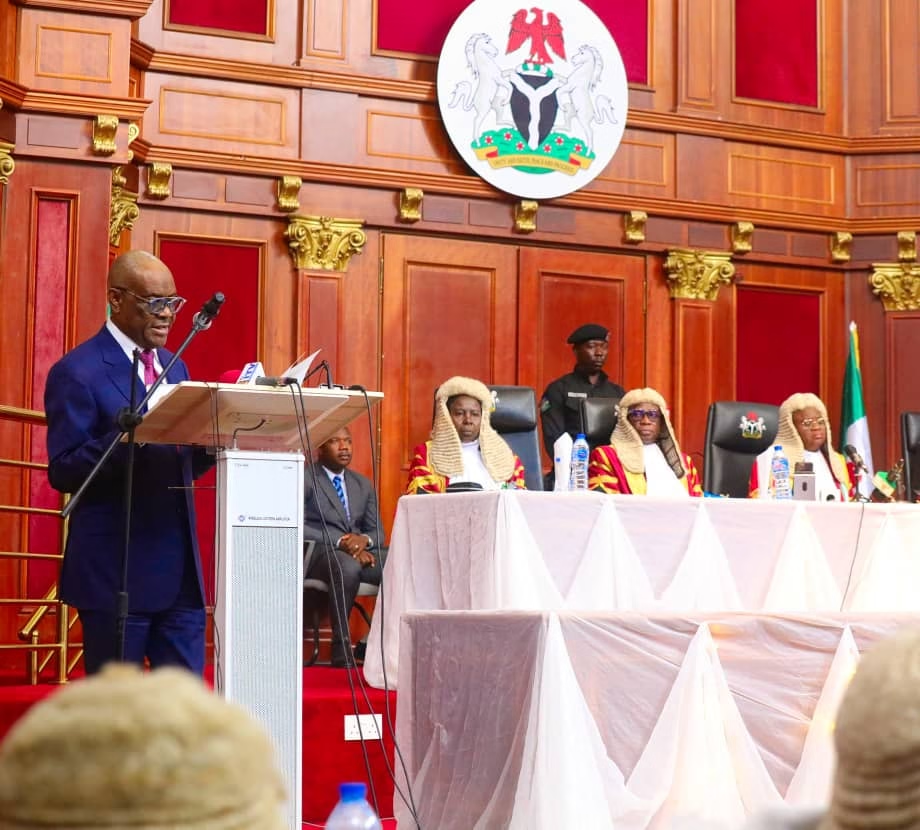A coalition comprising civil society organizations and legal professionals has urged the United Nations Special Rapporteur on the Independence of Judges and Lawyers, Margaret Satterthwaite, to promptly travel to Nigeria to investigate claims of judicial manipulation for political and economic gain.
In a petition dated March 26, 2025, and endorsed by Egondu Esinwoke, the Convener, and Courage Nsirimovu, the Coordinator, along with 24 civil society organizations, the groups assert that the Nigerian judiciary is being weaponized for political purposes by the Minister of the Federal Capital Territory (FCT), Nyesom Wike, and President Bola Tinubu to strengthen their power in Rivers State.
The petition draws attention to a contentious Supreme Court ruling that reinstated 27 lawmakers who had defected in Rivers State. The petitioners contend that this judgment contradicts an earlier Supreme Court decision in the case of Abegunde Ifedola Sunday v. Labour Party and is perceived as an attempt to undermine the Rivers State government.
An Independent Judicial Accountability Panel, consisting of 11 members, including three retired justices, reviewed the Supreme Court’s decision and deemed it perverse, expressing concerns regarding political interference in judicial matters.
The civil society organizations further accused FCT Minister Nyesom Wike of exerting undue influence over the judiciary, referencing a prior article by human rights attorney Chidi Odinkalu titled “Wiked Judges and Nyesomized Courts,” which claims that Wike has developed close ties with judges to sway court decisions in his favor.
The petitioners assert that President Bola Tinubu’s declaration of a state of emergency in Rivers State is unconstitutional and politically motivated. They argue that this action is part of a broader strategy to enable Wike to dominate the state’s political framework and resources in anticipation of the President’s re-election campaign.
The President, in his announcement of a state of emergency, referenced the Supreme Court’s decision and underscored the necessity for the Rivers State House of Assembly to enact an Appropriation Bill, which remains unaddressed. Nevertheless, civil society organizations contend that this rationale serves as a pretext for political meddling.
The petitioners are appealing to the United Nations to dispatch a delegation to Nigeria to examine corruption within the judiciary and to restore public trust in the legal system, which they view as the last refuge for ordinary citizens. They also urge the UN and the international community to exert pressure on the Nigerian government to maintain democratic principles in Rivers State.
The letter has received support from various organizations, including the Rivers Indigenous NGOs and Civil Society Network (RINGOCS), the Transition Monitoring Group (TMG) – Rivers State Chapter, the Civil Liberties Organization – South South Zone, the Centre for Environment, Human Rights, and Development, Lawyers Alert, and the Support Initiative for Sustainable Development (SISDEV).
The petitioners assert that an independent investigation by the UN Special Rapporteur is crucial to avert further compromises within the judiciary and to ensure its independence from political influence.
